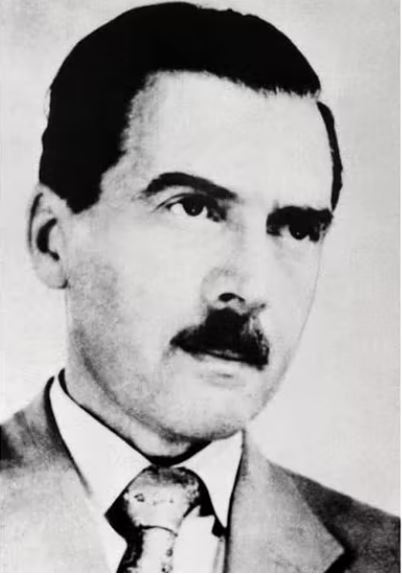Who would have thought that someone would write a novel about Josef Mengele, the Auschwitz doctor and infamous experimenter on live human bodies? Other characters in the French writer Olivier Guez’s story are also from the Nazi gang of debased criminals: Adolf Eichmann, Franz Stangl, the concentration camp commandant, and Klaus Barbie, the Butcher of Lyons.
This is a historical novel, and Guez has researched it well. He invests the structure of events with his imagination and has Mengele relate his experiences throughout his long avoidance of capture. There’s a vivid sense of reality about the crazed, unrepentant eugenist’s attempt at an acceptable fugitive way of life, and Guez holds our attention by building dramatic suspense. He is expert in the use of both imagined dialogue and reflective internal debate.
Mengele graduated to become a SS doctor at Auschwitz where he was often responsible for the Judenrampe selection of Jews, gypsies and social misfits either for the gas chambers or his laboratory experiments of ‘injecting, measuring, bleeding, cutting, killing and performing autopsies’. He kept a ‘zoo of children’, was particularly concerned with twins, and had a collection of blue eyes pinned to his office walls.
Post-war, he evaded capture by assuming false identities and hiding in the Bavarian countryside. Then, in 1949, using an escape network organised by unreformed Nazis, he travelled to South America, where he was supported by funds, funnelled through Nazi conduits, from his family’s agricultural machinery company in Germany.
Read the article by Brian Martin in The Spectator.

